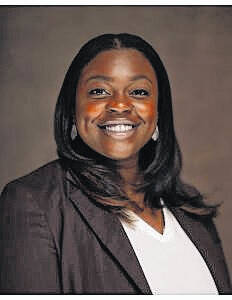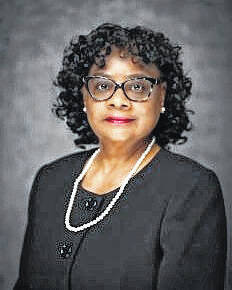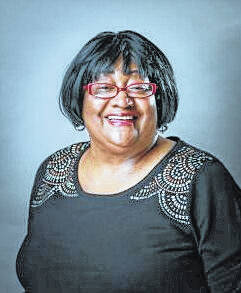LAURINBURG — The Laurinburg City Council voted to raise the rental rate for downtown facilities like McDuffie Square and the Arts Garden from $100 to $175.
The decision came after Corey Hughes, chair of the Downtown Advisory Committee, initially requested that council members raise the rate from $100 per day to $250. A motion was made by Councilmember Mary Jo Adams for the $250 increase, but the vote failed with three commissioners voting against.
“Do you think $250 is a little drastic,” Rosemary Rainer asked prior to the vote. “Could you sort of inch it up? Maybe $150 this year, next year maybe add another $50.”
Hughes pointed out the council first raised the rate from $0 to the $100 it is now.
“We’ve been at $0 … and while we could inch it up, we’d rather (not),” Hughes said. ” … no one’s had any complaints… We think given the infrastructure and what’s going to take place there … It warrants the increase.”
Council member Barbara Rogers, who also voted against the $150 increase, agreed with Rainer, saying the rate would be a “jump.”
“I don’t have an issue with an increase, but I think $100 to $250 is a jump, especially when we just started utilizing the space under its improvements,” Rogers said. “Maybe, it’s something we can revisit for a more feasible number in between but $250 seems like a bit of a jump.”
I’m afraid that if we increase the rates so much that all the activity that was going on may decrease quite a bit,” Councilmember Mary Evans added.
Hughes said the Downtown Advisory Committee sought the increase because of the growing infrastructure on site.
“When we first started renting it for $100, there was no infrastructure there,” Hughes said. “Now we have lights. The city is doing a lot more from a sanitation standpoint point so it’s costing more to provide that facility.”
Hughes also said raising the fee would allow for the Downtown Advisory Committee, which is a nonprofit, to generate funds that will then be invested back into downtown.
He referenced Sanford’s Depot Park, which costs $450 to rent.
“So we’re still well below what would be comparative opportunities in other communities,” Hughes said.
The vote to raise the fee to $175 was unanimous.
In other financial business, the council voted to amend the budget to increase funding for a fleet wash facility construction project by $4,600.
The council also voted to set the candidate filing fee for the Laurinburg City Council for $25 for the 2025 Municipal Elections.
In other business, during a special-called budget meeting, the city council was presented a draft of the city’s 2025 Capital Improvement Plan for the next five years.
“Our goal is to go after as many grants as possible, of course, to help meet some of our capital needs,” said City Clerk Harold Haywood. “We have been fortunate to receive some grant funding and state funding in the last few years, so we’re appreciative of that, certainly.”
Haywood said Capital fund projects are estimated to cost $66 million over the next five years. Some of this is offset by $30 million allocated from the state for water and sewer projects, but there is still a “significant need” for funding.
Over the next three years, the General Fund Capital Improvement Plan reflects between $1.5 million and $2 million in capital needs annually. In year four, around $750,000 in projects are included in the plan as well as $1 million for the fifth year, which is fiscal year 2030.
“Since year four is about half that we may be able to shift some items from the first three years down to year four, hopefully to try to balance this up or level it off some,” Haywood said.
As far as departments, the bulk of the General Fund capital projects funding will be used by the Streets and Highways with an estimated $1.5 million in projects over the next five years. Public Safety will account for about $970,000 over the five-year period.
“Public Safety, of course, always represents a large portion of these needs,” Haywood said.
Water/Sewer Fund Capital Projects are estimated to cost $44.7 million over the five-year period, while the Solid Waste Fund Capital needs total about $1.9 million.
“Some of the projects, obviously, if we don’t have the funding for it, it gets pushed out a couple of years or pushed down the line, and so it kinda levels out … based on what’s the available funding for these projects,” Haywood said.



